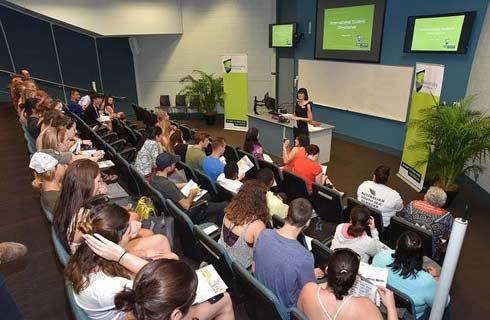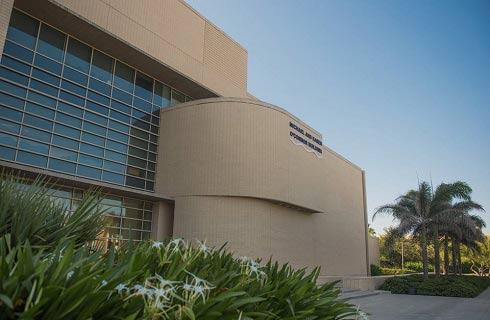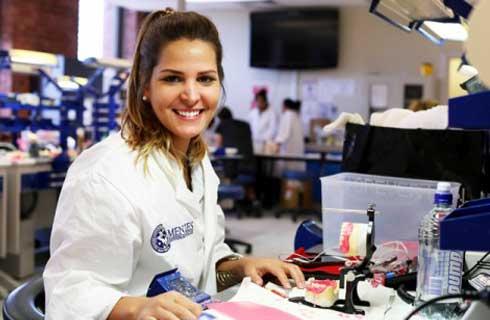心理学科学(荣誉)学士学位
Bachelor of Science (Honours) in Psychology

学历文凭
Bachelor Degree with Honours

专业院系
Science

开学时间

课程时长

课程学费

国际学生入学条件
IDP—雅思考试联合主办方

雅思考试总分
- 雅思总分:
- 托福网考总分:
- 托福笔试总分:
- 其他语言考试:
CRICOS代码: 030489K
申请截止日期: 请与IDP联系 以获取详细信息。
课程简介
This degree aims to provide students with a higher level of experience in independent analysis and research in their chosen field of expertise. This experience has vocational aims, but also provides a preparation for study by coursework andor research for the higher degrees of Master of Science or Doctor of Philosophy. The Clayton honours course is available in most of the science areas of study offered in the Bachelor of Science pass degree at the Clayton campus. The honours program involves coursework through seminars and a major research project. Science graduates gain employment in biotechnology and genetic engineering, agricultural support and pharmaceutical science, banking and finance, environmental consulting, hospitals, medical institutes, mining, petroleum and engineering, research, and wine and food industries. Opportunities also exist in organisations including the Department of Sustainability and the Environment, CSIRO, the defence forces, road and water authorities, museums, local councils, education and the health sector. Depending on their major areas of study, graduates can be employed as botanists, chemists, ecologists, astrophysicists, biotechnology product developers, environment consultants, food scientists, palaeontologists, genetic engineers, marine biologists, materials scientists, medical scientists, metallurgists, molecular biologists, museum curators, nuclear physicists, psychologists, financial analysts, communications specialists, forensic scientists, researchers, science journalists, geotechnical engineers, statisticians, teachers, computer scientists and weather forecasters.
相关申请
 预科
预科 奖学金
奖学金 实习机会
实习机会 在校学习
在校学习 跨境学习
跨境学习 校园授课-线上开始
校园授课-线上开始 在线/远程学习
在线/远程学习
开学时间&学费
学费信息仅供参考,请与IDP联系以获取详细信息
| 开学时间 | 时长 | 学费 | 地点 |
|---|
学校排名

世界排名84
数据源:
泰晤士高等教育世界大学排名
关于蒙纳士大学

蒙纳士大学(Monash University),世界百强名校,是澳洲八大名校(Group of Eight)的盟校成员。于1958年由国会建立,是维多利亚州的第二所古老的大学,为纪念杰出的澳大利亚军人、学者兼工程师约翰·蒙纳士爵士,大学以其姓氏命名。蒙纳士大学以其卓越的教学和精湛的科研而在国际拥有声誉,蒙纳士是澳大利亚规模最大的国立大学之一,其综合实力在各大学中名列前茅,也是著名的密集研究型大学,被评为澳大利亚五星级大学。并在四大洲多个国家设有校区和科研中心,与全球科研领域与高校紧密合作,在北美,欧洲,英国,亚洲以及非洲建立了合作关系并结为联盟。蒙纳士在墨尔本有七个校区,每个校区皆各具特色。蒙纳士大学拥有包括澳大利亚肝细胞中心等100个研究中心和17个合作研究所,是澳洲主要的国内研究机构。
本校相关课程

健康科学学士(荣誉学位)
学历文凭
Bachelor Degree with Honours
开学日期
课程费用总额


建筑学硕士
学历文凭
Masters Degree (Coursework)
开学日期
课程费用总额


美术学士(荣誉学位)
学历文凭
Bachelor Degree with Honours
开学日期
课程费用总额


商科研究生证书
学历文凭
Graduate Certificate
开学日期
课程费用总额


专业会计硕士和商法硕士
学历文凭
Masters Degree (Coursework)
开学日期
课程费用总额


外科硕士
学历文凭
Masters Degree (Research)
开学日期
课程费用总额

其他相关课程

政治与国际关系学士/心理学理学士
 堪培拉大学
堪培拉大学泰晤士高等教育世界大学排名:470
学历文凭
Dual Degree
开学日期
课程费用总额


心理科学学士
 悉尼新南威尔士大学
悉尼新南威尔士大学学历文凭
Bachelor Degree
开学日期
课程费用总额


哲学硕士-心理学
 澳大利亚国立大学
澳大利亚国立大学学历文凭
Masters Degree (Research)
开学日期
课程费用总额


哲学博士-临床心理学
 澳大利亚国立大学
澳大利亚国立大学学历文凭
Ph.D.
开学日期
课程费用总额


心理科学学士
 南十字星大学
南十字星大学泰晤士高等教育世界大学排名:456
学历文凭
Bachelor Degree
开学日期
课程费用总额


心理科学学士
 澳大利亚应用心理学学院
澳大利亚应用心理学学院学历文凭
Bachelor Degree
开学日期
课程费用总额










